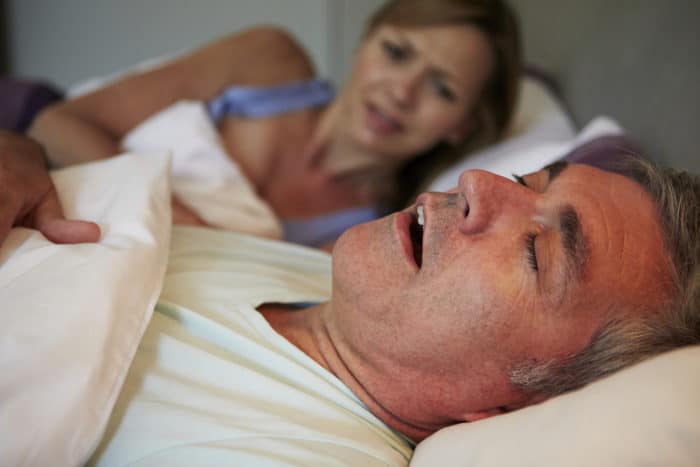
Snoring Treatments
A) Nasal Obstruction
- a hot shower before bed to help open nasal passages
- saline nasal sprays such as XLEAR or Ayr
- over-the-counter decongestants such as Allegra, Claritin, or Zyrtec
- over-the-counter steroid nasal sprays such as Flonase or Nasacort
- nasal strips such as Breathe Right to open nasal passages
- nose vents to open nasal passages such as SnoreCare or Gideon
- for allergies, changes to your diet or environment
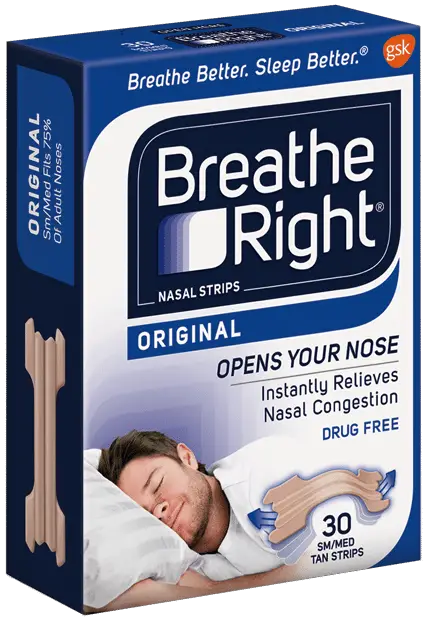
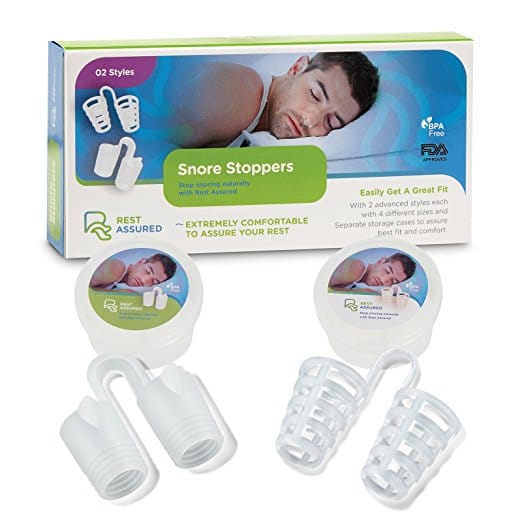
B) Relaxed Tongue
- Mandibular Advancement Devices (MAD) move the jaw and tongue forward which also keeps airway tissues and muscles tightened
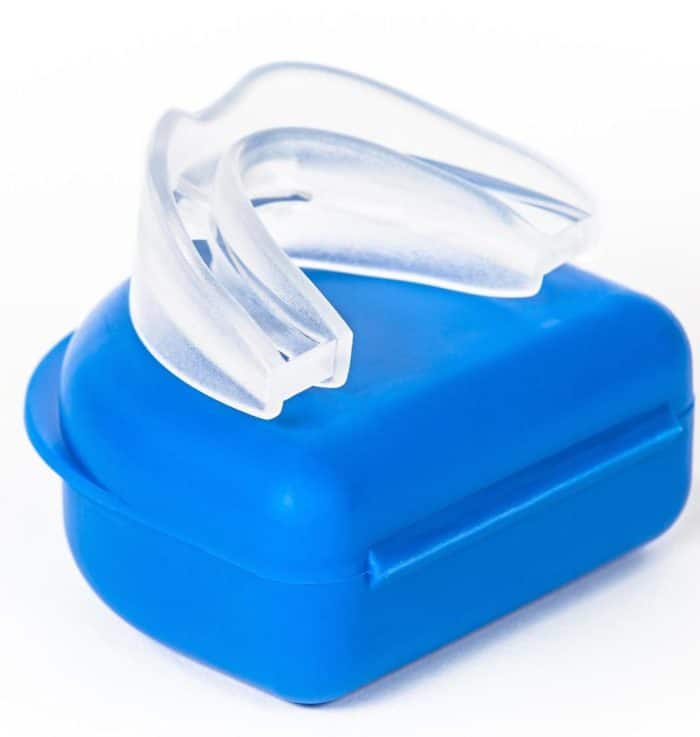
- Tongue Retaining Devices (TRD) hold the tongue forward so that the airway remains open
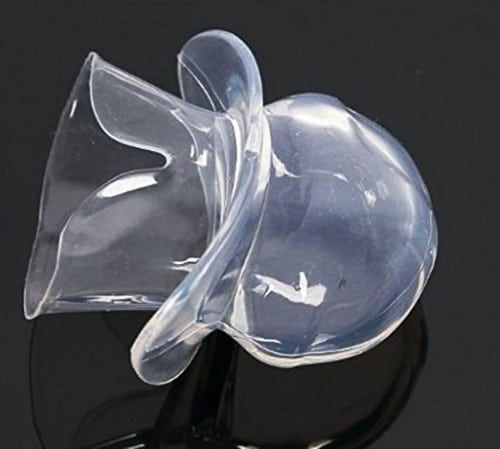
C) Open Mouth
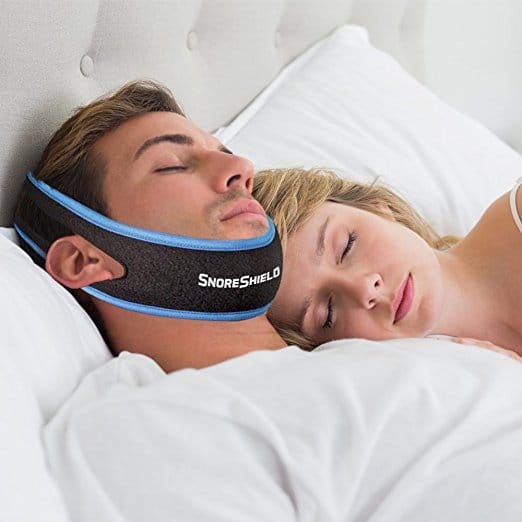
Here are some more snoring treatments to try:
You can learn more about sleep hygiene here.
Learn more about CPAP treatment here.
Learn more about surgical options here.
Snoring Treatments: Things to Remember
- It’s a very common problem
- It’s caused when air flowing through the mouth or nose is obstructed
- Air movement can be obstructed due to issues with the nose, tongue, or mouth
- There’s a wide variety of treatments designed for different causes
- Habitual snoring may put you at risk for other life-threatening issues
Will snoring stop after pregnancy?
Can snoring cause nose bleeds? – Here’s what we know
Hear what experts and patients have to say about snoring
Worried snoring will wake the baby? – What I learned from an informal survey and what you can do
Can snoring cause a sore throat? – What we know, 12 things to try
Connect with us:
About Us
Better Sleep Simplified® was founded as a place for you to get clear and well-researched information.
Our goal is to make sure you know about your options so that you take action sooner rather than later.
Check us out on YouTube:
Watch and Learn
Helpful sleep tips, interesting sleep facts and statistics you want to know about
Affiliate Disclosure
This site is a participant in the Amazon Services LLC Associates Program and other affiliate advertising programs designed to provide a means for sites to earn advertising fees by advertising and linking to them.
Important: BetterSleepSimplified.com is for informational purposes only and is not intended or implied to be a substitute for professional medical advice, diagnosis, or treatment. Always consult a physician for sleep and health concerns. See additional information.
